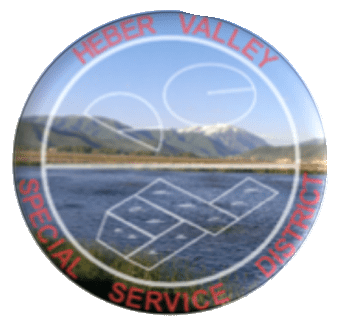Heber Valley SSD Statement on Protection Area Applications
September 13, 2024
STATEMENT ON PROTECTION AREA APPLICATIONS
Public notices were sent out this week informing our neighbors that Heber Valley Special Service District (HVSSD) has submitted applications to the Wasatch County Planning Department to have some of our property designated as protection areas. We would like to share what this means and why we are seeking these designations.
Agricultural Protection Area
HVSSD operates Southfield Farm in the area of Southfield Road. We have applied for Southfield Farm to be designated as an Agricultural Protection Area. Like many other large agricultural areas in the valley that have been designated as Agricultural Protection Areas, we want this land to be protected as an agricultural space for generations to come. This designation ensures that the farm is protected from future zoning changes that might affect our ability to continue farming, while maintaining valuable open space that benefits the watershed, wildlife, and the natural beauty of Heber Valley.
Industrial Protection Area (It does not prevent changes and enforcement related to public health and safety, and we wouldn’t want it any other way! Please read on!)
Similarly, Utah state law allows utility providers to apply for Industrial Protection Area status and HVSSD has submitted an application for our treatment plant to receive this designation. This will help ensure that we can continue to provide high-quality, affordable wastewater treatment for our community.
Industrial Protection Area status offers similar protections to the Agricultural designation, helping safeguard the treatment plant from zoning, local code, or state regulatory changes that could impact operations. It does not prevent changes and enforcement related to public health and safety, and we wouldn’t want it any other way!
As a public entity managed by leaders in our community, we care deeply about protecting our community and being a good neighbor. In recent years neighbors near the plant have reported odors that have been challenging for them during the spring season when temperatures rise. It has been our top priority to investigate these reports and do whatever we can to mitigate odors coming from the plant. We know that 2023 was particularly challenging, but thanks to recent improvements at the plant (outlined in more detail below), we received only a small handful of odor reports this spring. We are optimistic that these changes will have a lasting impact, and we are committed to ongoing efforts to minimize odors. We have also invited local and state health departments to conduct studies at the plant, ensuring that we continue to operate safely and responsibly.
Industrial Protection Area status will not change our need and commitment to be a good neighbor. We remain dedicated to continuous improvement and being a good community partner.
Odor Mitigation Improvements
HVSSD serves 12,037.2 Equivalent Residential Units (ERUs) in Midway and Heber City, treating an average of 2.324 million gallons of wastewater per day. Our plant includes both aerated lagoons and a mechanical treatment facility.
Here are some of the key steps we’ve taken to reduce odors:
- In January 2024, we installed a custom lagoon treatment system that uses chemical neutralizers, significantly reducing odors during spring turnover.
- We repaired and replaced equipment at our mechanical plant, allowing us to divert more flow from the lagoons to the mechanical plant to further reduce odor.
- We’re in the process of preparing bids to dredge the lagoons, which will help us remove accumulated solids and make necessary repairs to the aeration system.
- A new odor control system is being designed for the headworks and primary clarifier, including a cover for the clarifier and a treatment system to manage foul air.
- To address odors from our lift stations, we’re acquiring and deploying a microbial-based odor treatment system.
Future Plans
Many have asked about the future of the lagoons. Any plans will be made through an open and transparent process, where we welcome input from the community. Expanding our mechanical plant is our preferred way to increase capacity, and we currently have no plans to add more lagoons. Immediately replacing the lagoon system with mechanical treatment alone would require significant rate increases—three to five times the current rates—which we believe the community is not ready to support at this time.

